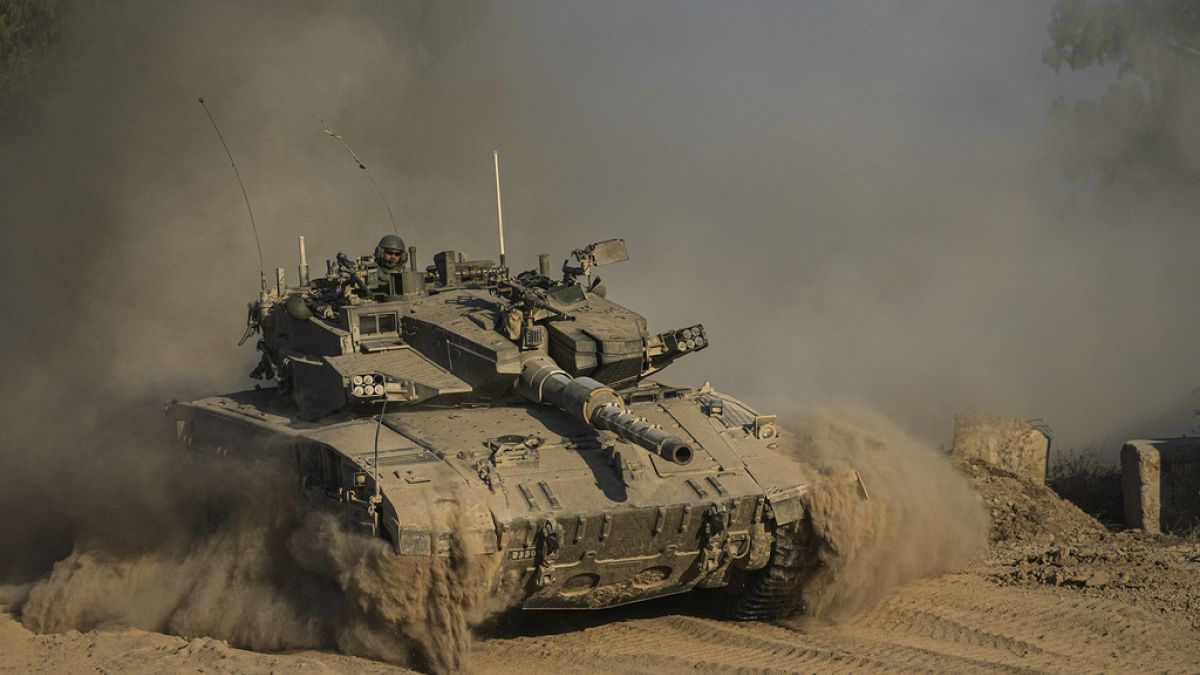War between Israel and Hamas: According to Hamas, ceasefire talks are still ongoing

The group also said on Sunday that its top military commander was in good health following a massive Israeli air strike on Gaza.
A day earlier, the Israeli military carried out a massive airstrike on Mohammed Deif, killing at least 90 people, including children, according to local health officials. Hamas said on Sunday that ceasefire talks in the Gaza Strip were continuing and that the group’s military commander was in good health.
Deif’s condition remained unclear after Israeli Prime Minister Benjamin Netanyahu said Saturday night there was “still no absolute certainty” that he was killed. Hamas officials provided no evidence to back up their claim about the health of a key architect of the Oct. 7 attack that sparked the war.
The Israeli military said Sunday that Rafa Salama, a Hamas commander considered one of Deif’s closest confidants, was killed in Saturday’s attack. Salama commanded Hamas’ Khan Younis Brigade. The statement did not provide any update on Deif, who has long been at the top of Israel’s most wanted criminals list and has been in hiding for years.
Hamas rejected the notion that ceasefire talks had been suspended following the attack. Spokesman Jihad Taha said: “There is no doubt that the horrific massacres will affect all negotiation efforts,” but added: “The efforts and efforts of the mediators continue.”
The killing of Deif would be the most high-profile assassination of a Hamas leader by Israel since the war began. It would be a major victory for Israel and a major psychological blow to the militant group. Netanyahu said all Hamas leaders were “sentenced to death” and assured that their killing would bring Hamas closer to a ceasefire.
Hamas political officials stressed that communication channels between the leadership inside and outside Gaza remained functional even after the attack in the south of the territory. According to eyewitnesses, the attack took place in an area that Israel had designated as a safe area for hundreds of thousands of displaced Palestinians. The Israeli military would not confirm this.
Some survivors expressed anger on Sunday that the attack on Deif came without warning in an area that had been said to be safe.
“I heard the first blow and my son came screaming ‘Daddy, Daddy’ and took cover with me,” said Mahmoud Abu Yaseen, who clutched his children but then woke up in hospital to find his son had died. The family had been displaced five times since the war began. “Where are we going?” he asked.
A United Nations official described the utter chaos at Nasser Hospital, where the victims were taken, with many being treated on blood-stained floors and few medical supplies available.
“I have witnessed some of the most horrific scenes I have seen in my nine months in Gaza,” Scott Anderson said in a statement. “I have seen young children who have had both legs amputated, paralyzed children unable to receive treatment, and others separated from their parents.” He said restrictions on humanitarian aid to Gaza are hampering efforts to provide essential medical and other care.
On Sunday, Israeli Defense Minister Yoav Gallant praised the pilots who carried out the attack and said Hamas was weakening every day because it was unable to arm itself, organize itself or “care for the wounded.”
At least 300 people were injured in the attack. It was one of the deadliest attacks in the nine-month war that began with Hamas’s attack on southern Israel on October 7. The attack killed about 1,200 people, mostly civilians, and took more than 200 hostage.
Since then, more than 38,400 people have been killed in Gaza by Israeli ground offensives and bombings, according to the Health Ministry. The ministry makes no distinction between fighters and civilians in its count.
On Sunday, an Israeli attack in Nuseirat in central Gaza killed at least 14 people at the gate of a school used as a shelter for displaced people, an Associated Press journalist who visited two hospitals reported. Children were among the 15 other injured. The Israeli military said in a statement that it had hit “terrorists” operating near a school run by the UN agency for Palestinian refugees.
Also on Sunday, police announced that a Palestinian from East Jerusalem carried out a car attack in central Israel, wounding four Israelis, two of them seriously. Israeli border police on the scene shot the attacker dead after he hit people waiting at two bus stops along a busy road. The Israeli military said four of its soldiers were wounded, two of them seriously.
Israeli police commissioner Kobi Shabtai said such attacks were often “triggered” by events like Saturday’s airstrike in the Gaza Strip.



